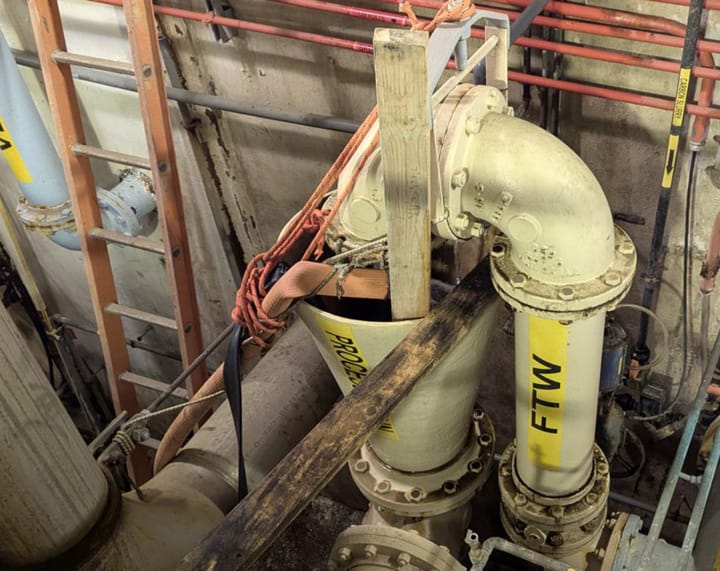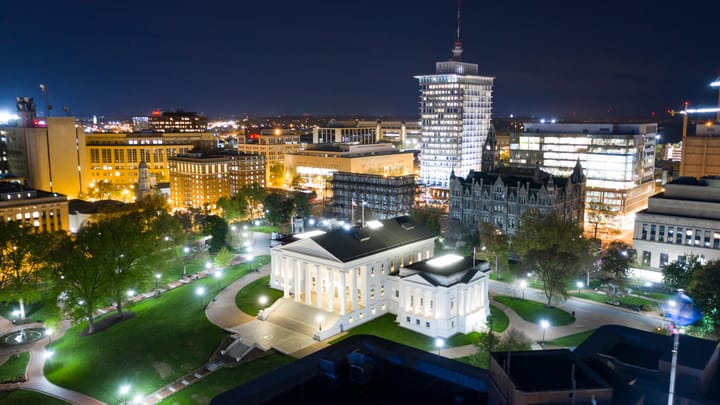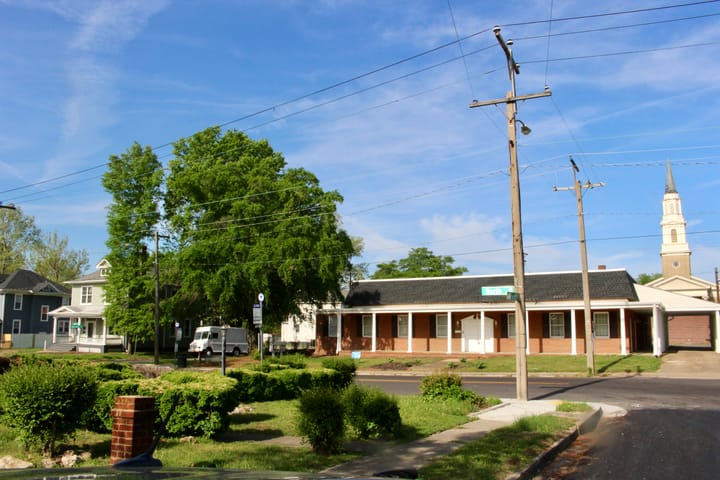Richmond officials planning to redo crumbling Cherokee Road
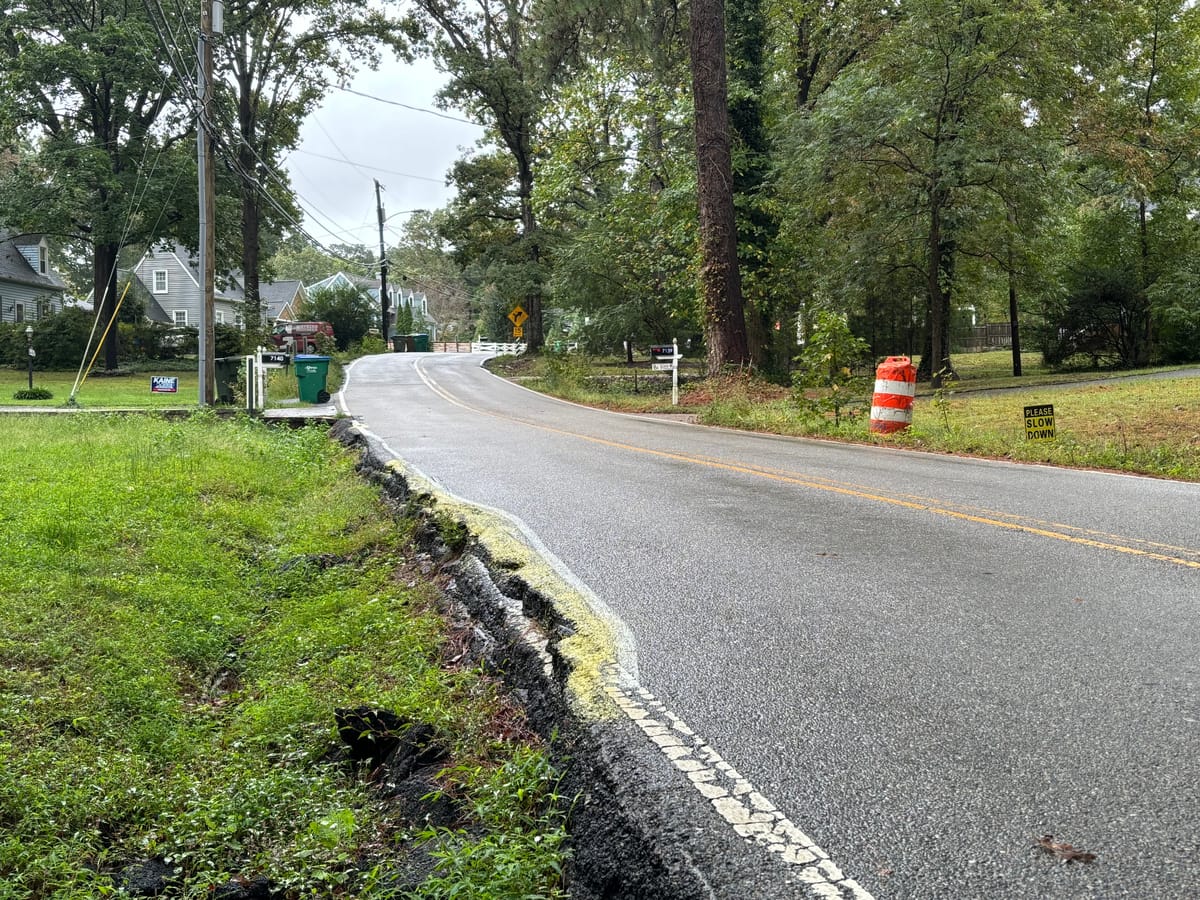
South Richmond’s Cherokee Road already feels like a narrow country road. In some parts, it’s getting narrower as pieces of the road come off and crumble into a steep ditch.
At a community meeting this week, city officials unveiled plans for what they might do about it.
“The current integrity is collapsing,” Department of Public Works Senior Engineer Jerry Allen told a crowded room Monday night at the Southampton Recreation Association. “If you get too close to the edge, you don’t know if you’ll fall off the edge that day or not.”
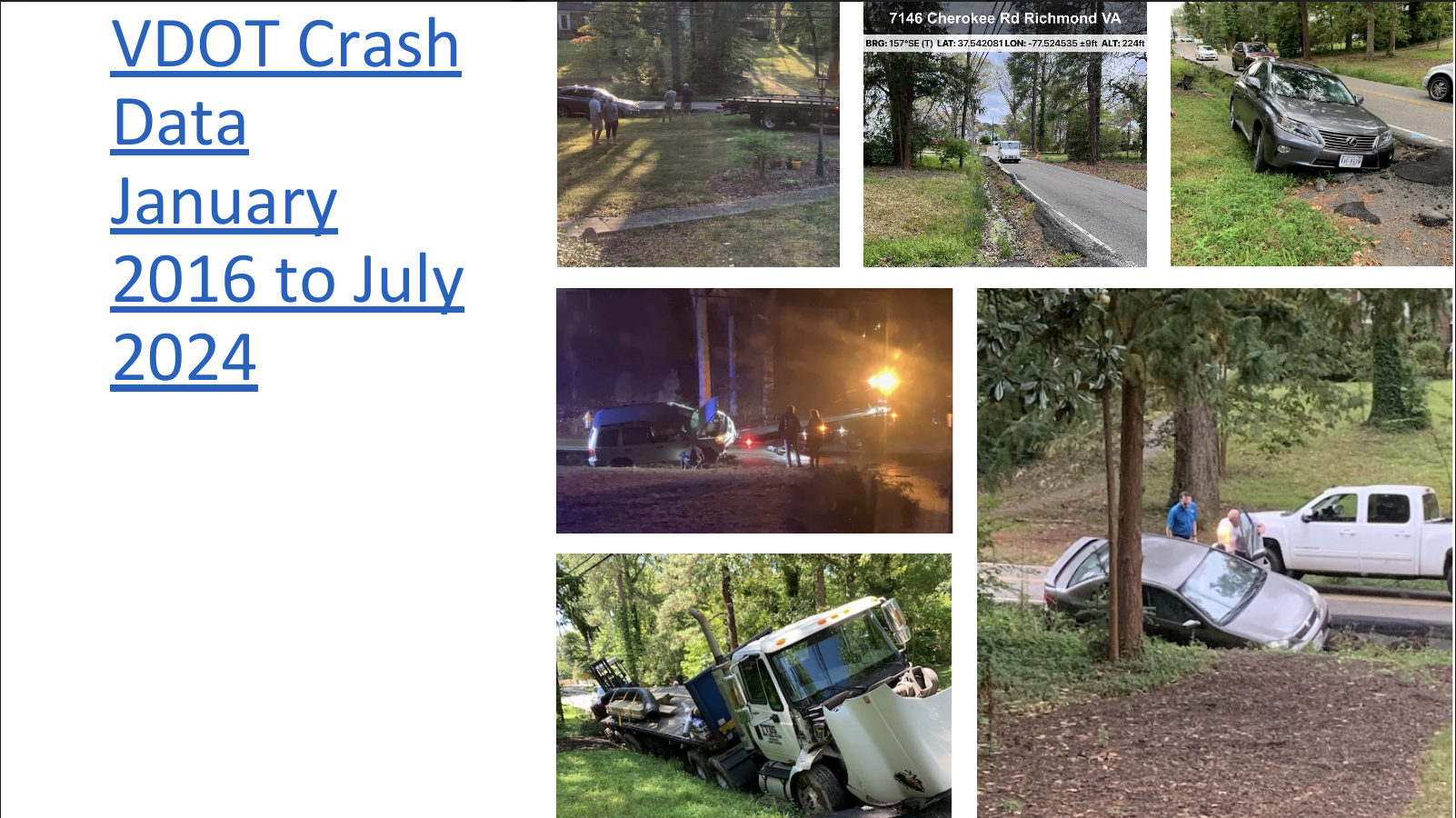
After displaying a series of photos showing that vehicles also often end up in the ditch along with the disintegrating asphalt, officials presented four options for a planned traffic safety project on the two-mile stretch of Cherokee that runs from Forest Hill Avenue to Huguenot Road.
All the designs would lead to a wider roadway with bigger shoulders, the addition of a sidewalk, a curb and gutter design or some combination of those features. All the plans call for two ten-foot travel lanes.
The four options are as follows:
- Option 1: 4-foot shoulders on both sides of the road.
- Option 2: 4-foot shoulders on both sides and a 5-foot sidewalk on one side.
- Option 3: A 4-foot shoulder on one side and a 8-foot shoulder on the other side that could serve as a multi-use path.
- Option 4: Curb and gutter infrastructure on both sides and a five-foot sidewalk on one side.
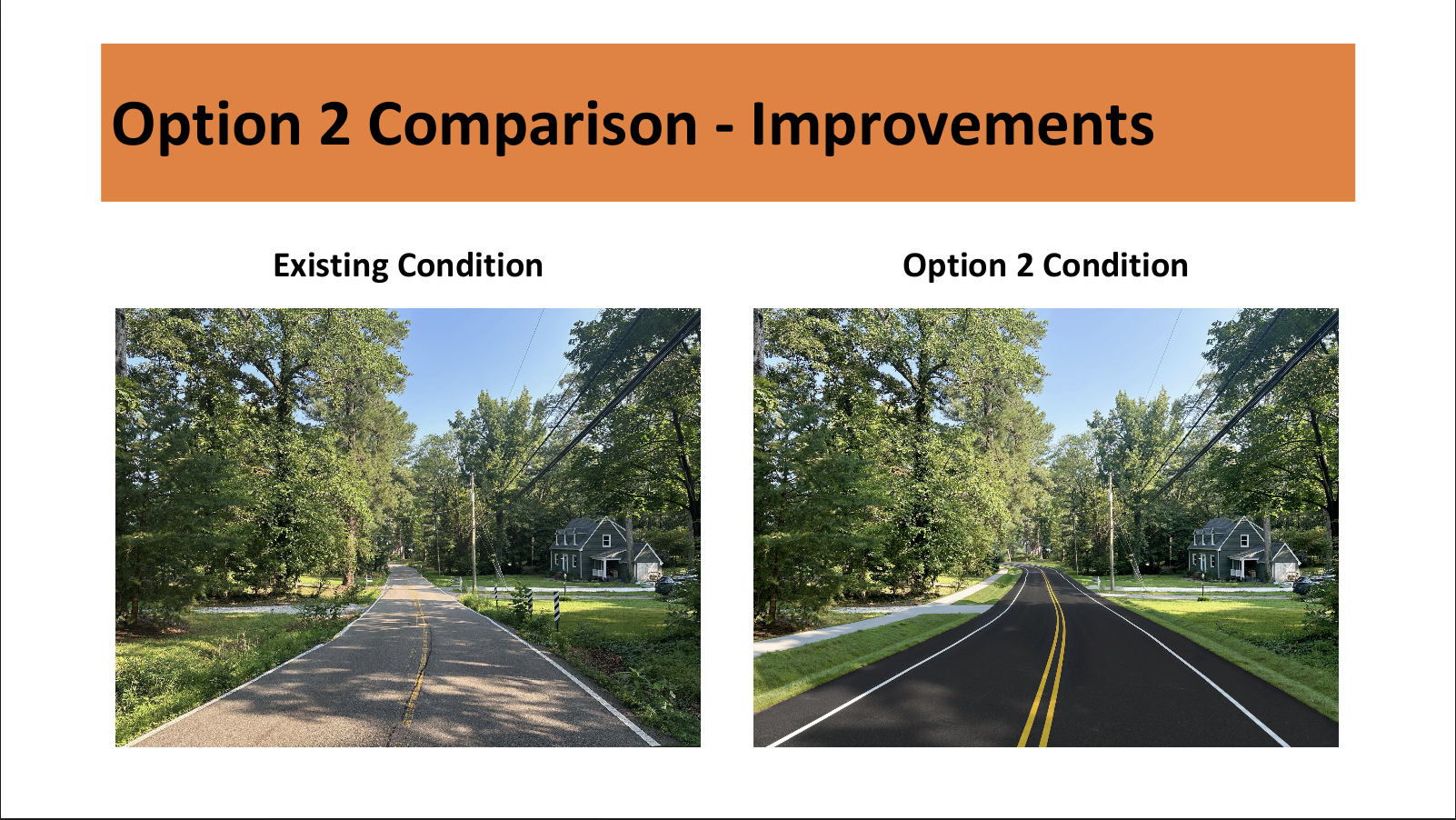
Officials said they tentatively expect a sidewalk to go on the south side of the road, but want to hear input from residents on the exact design. The options are estimated to cost somewhere between $10 million and $18.5 million. The curb and gutter option would be the most expensive, while the shoulders-only plan would be the cheapest.
The timeline for the project is not yet clear because full funding hasn’t been secured. Officials said they expect construction to occur in 2026 and 2027 and take somewhere around 18 months to complete.
“We are doing improvements. We’re not here to say should we do this or not,” Allen said. “We’re moving forward with doing this because it’s a safety concern.”
City Council President Kristen Nye, whose 4th District includes the Stratford Hills neighborhood that Cherokee runs through, said the city has already allocated an initial $1 million for the project.
“The million dollars will not cover it. So this is our first meeting, our first outreach on this,” Nye told the crowd Monday. “It’s really just to get folks’ input.”
Though city officials pitched the project as a way to make a hilly, winding road more friendly to pedestrians and bicyclists, some Cherokee residents raised concerns that a bigger and better road might lead to more vehicles speeding.
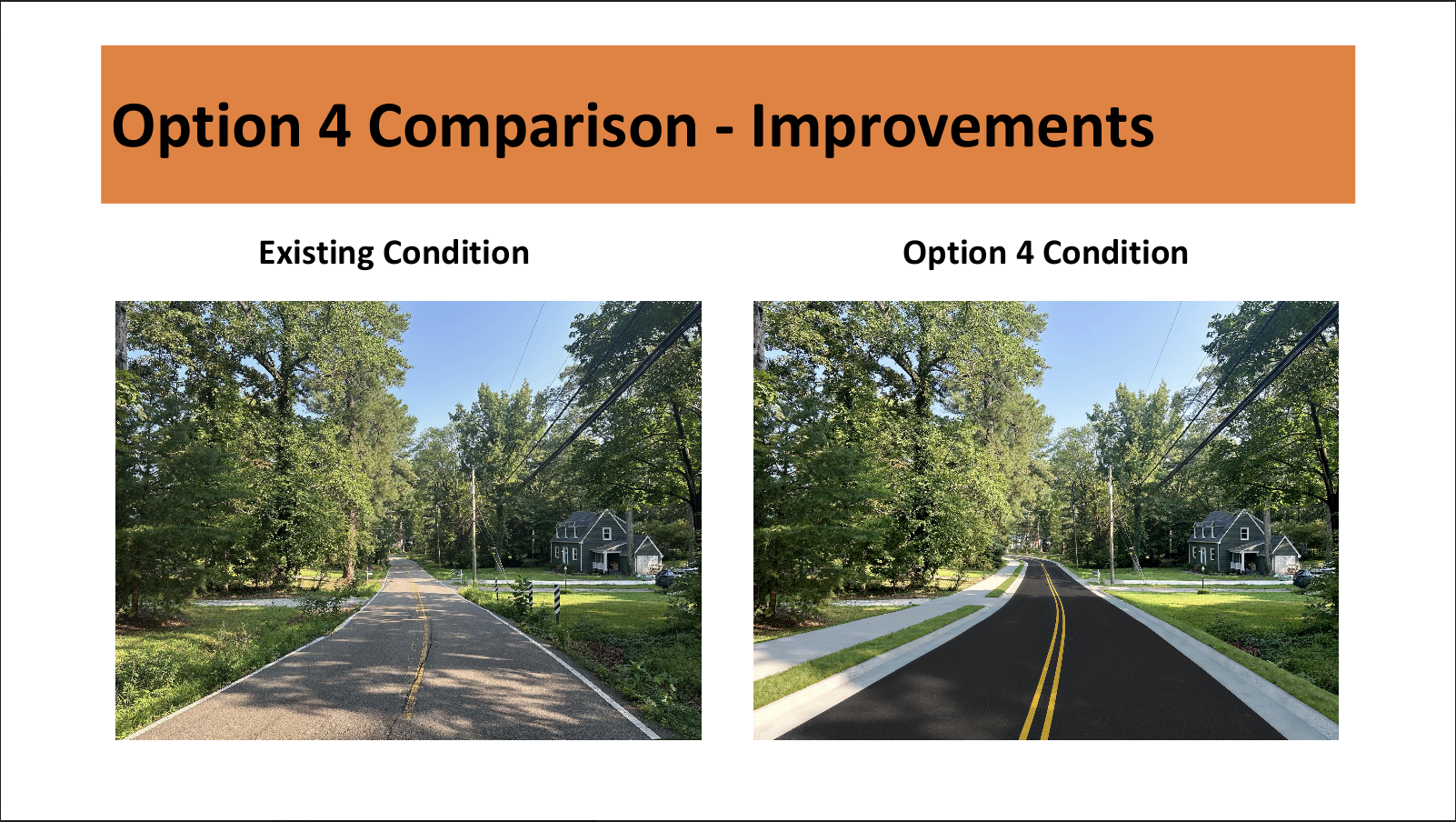
Some skeptics in the neighborhood questioned officials on whether the project was truly meant to improve safety for people who live in the area or make it easier for cars to quickly pass through.
Adam Shearer, a 43-year-old Cherokee resident who’s renovating a house near the intersection with Forest Hill, asked if any anti-speeding measures would be part of the project. He was told that’s an issue the city handles separately from the road improvement project being discussed Monday.
“I don’t think they’ve got any concern for the safety aspect of it,” Shearer said after the meeting.
“They can take my yard. If they put in speed calming measures, they can have as much of it as they want.”
The city will have to acquire land rights from property owners along Cherokee in order to do the road project, but the exact amount of right-of-way needed will also depend on the project design and how it fits with individual parcels.
The city recently installed two speed tables on Cherokee to slow down traffic, but officials acknowledged Monday that a wider road could cause some drivers to go faster.
Allen, the city engineer, reminded the crowd that the goal of the project is to make the road safer for everyone who uses it.
“Some of you folks wake up at night with cars in your yard,” he said.


